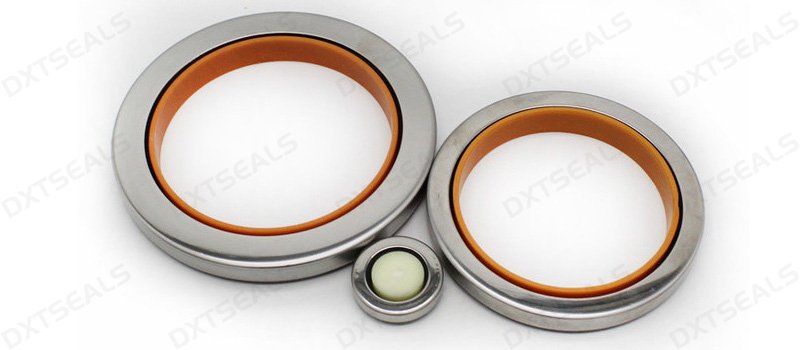
Plastic washers are versatile components that deliver exceptional performance in a range of applications, particularly in challenging and specialized environments. Their ability to resist extreme temperatures, chemicals, and mechanical stress makes them a popular choice across industries such as aerospace, electronics, and chemical processing. This article explores the key types of plastic washer materials, their characteristics, and their applications in demanding environments.
Key Types of Plastic Washer Materials
-
Nylon (Polyamide) Washers
- Properties:
- Lightweight and durable.
- High resistance to abrasion and wear.
- Excellent mechanical strength and electrical insulation properties.
- Applications:
- Ideal for electronics and automotive industries.
- Used in fastening and insulation applications where durability and precision are critical.
- Properties:
-
PTFE (Polytetrafluoroethylene) Washers
- Properties:
- Outstanding chemical resistance.
- Operates efficiently in extreme temperatures (-200°C to 260°C).
- Low coefficient of friction for smooth performance.
- Applications:
- Widely used in chemical processing, food production, and pharmaceutical industries.
- Suitable for sealing and insulating applications in corrosive environments.
- Properties:
-
Polycarbonate Washers
- Properties:
- Exceptional impact resistance and transparency.
- High temperature tolerance with good dimensional stability.
- Applications:
- Commonly used in medical devices and optical equipment.
- Suitable for environments requiring high clarity and toughness.
- Properties:
-
Polypropylene (PP) Washers
- Properties:
- Resistant to chemicals, moisture, and UV radiation.
- Lightweight and cost-effective.
- Applications:
- Used in plumbing, water treatment, and outdoor applications.
- Ideal for systems exposed to harsh chemicals or prolonged sunlight.
- Properties:
-
PEEK (Polyether Ether Ketone) Washers
- Properties:
- Excellent thermal and chemical resistance.
- High mechanical strength and wear resistance.
- Applications:
- Ideal for aerospace, automotive, and oil and gas industries.
- Performs well in high-temperature, high-pressure environments.
- Properties:
-
HDPE (High-Density Polyethylene) Washers
- Properties:
- Resistant to impact and abrasion.
- Excellent moisture and chemical resistance.
- Applications:
- Common in construction and agricultural equipment.
- Performs well in wet or corrosive environments.
- Properties:
Performance of Plastic Washers in Specialized Environments
-
High-Temperature Environments
- Materials like PEEK and PTFE are specifically designed to withstand extreme heat without losing structural integrity.
- Applications include aerospace engines, industrial furnaces, and high-temperature sealing systems.
-
Chemical Processing Plants
- PTFE and polypropylene washers excel in highly corrosive environments, ensuring long-lasting sealing and insulation.
- Commonly used in pipelines, valves, and chemical storage tanks.
-
Underwater or Moist Conditions
- HDPE and polypropylene washers offer excellent water resistance, making them ideal for marine equipment and water treatment facilities.
-
Outdoor Applications
- UV-resistant materials like polypropylene and polycarbonate ensure longevity in outdoor conditions.
- Used in solar panel installations, outdoor machinery, and agricultural systems.
-
Electrical Insulation
- Nylon and polycarbonate washers are effective in electrical and electronic systems, providing reliable insulation and reducing risks of short circuits.
Benefits of Plastic Washers in Specialized Environments
-
Lightweight Design:
- Reduces the overall weight of systems compared to metal washers.
-
Chemical and Corrosion Resistance:
- Ensures durability in chemically aggressive or corrosive environments.
-
Versatility:
- Suitable for a wide range of industries, from medical to aerospace.
-
Cost-Effectiveness:
- More affordable than metal alternatives for many applications.
-
Customization:
- Easily molded into specific shapes and sizes for unique requirements.
How to Select the Right Plastic Washer for Your Needs
-
Understand the Operating Environment:
- Analyze temperature, pressure, and chemical exposure to determine the ideal material.
-
Consider Load and Stress Levels:
- Choose a material with sufficient mechanical strength for your application.
-
Evaluate Longevity Needs:
- Opt for durable materials to reduce replacement frequency and maintenance costs.
-
Check Standards and Certifications:
- Ensure compliance with industry-specific requirements such as FDA, ISO, or RoHS standards.
-
Consult Experts:
- Work with reputable manufacturers to identify the best solution for your application.
Conclusion
Plastic washers are essential components for applications in specialized and demanding environments. With a variety of materials available, from durable PEEK to versatile nylon, selecting the right washer ensures optimal performance and reliability. By understanding the unique properties of different plastic washer materials and matching them to specific operating conditions, industries can achieve superior results and reduced maintenance costs.
For expert advice and high-quality plastic washers tailored to your needs, consult trusted manufacturers to find the best solutions for your applications.
